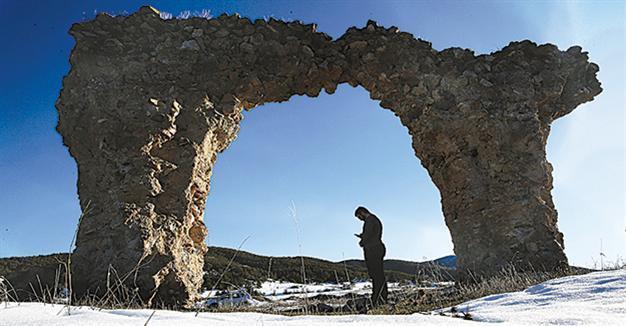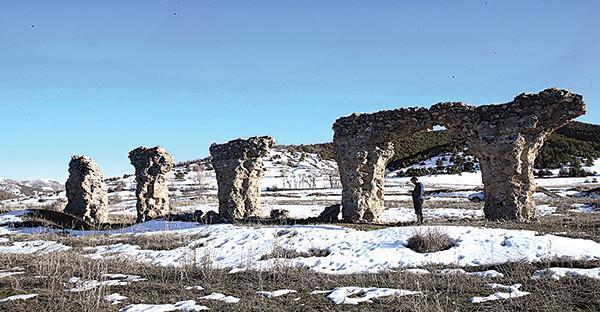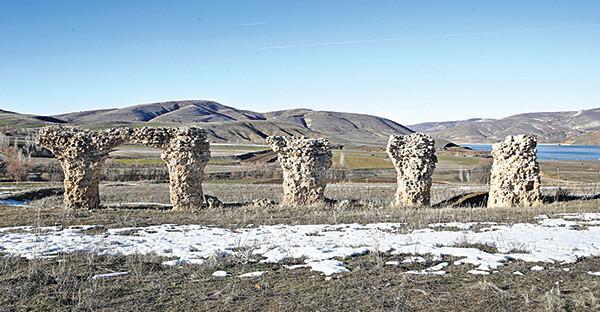Scholars to explore secrets of Roman city
TRABZON - Anadolu Agency

A surface survey will be carried out in the ancient city of Satala, which served as a military headquarters in the Roman Empire Gümüşhane. AA Photos
An application has been lodged with the Culture and Tourism Ministry to conduct a surface survey to investigate the ancient city of Satala, which served as a military headquarters in the Roman Empire in the northern province of Gümüşhane’s Kelkit district.
According to historical records, the city, which is 28 kilometers from the city center, was established by the 15th Apollo Legion, a legion of the Imperial Roman army. It served as a headquarters in the ancient era and also served as an intersection of military roads passing through Anatolia and Cappadocia.
The city was controlled at various times by the Assyrian, Macedonian, Roman and Byzantine civilizations.
One arch survives
A 47-arched aqueduct was built to bring water to the ancient city of Satala but only one arch survives today.
The city is believed to cover a very large area. Candles, rings, arms, pots, metal pieces and coins have all been discovered at the site and are now on display at the Istanbul Archaeology Museum, while a bronze bust of Aphrodite is at London’s British Museum.
Kelkit Mayor Ünal Yılmaz said the ancient city of Satala, which is under protection as an archaeological site, had been examined by university academics.
As a result of the examination, a report was prepared by the Gümüşhane Governor’s Office, Kelkit Municipality and academics. In line with the report, an application was made to the Culture and Tourism Ministry to conduct a surface survey.
Yılmaz said no serious work had been carried out in the historical city.
“No work has been implemented here although there were discussions from time to time. Evaluations were also made but nothing was done in practice. Because it is an archaeological site, people were not able to build structures there. I hope the applications will receive a positive response and that works will be initiated,” Yılmaz said.
“Our academics are very hopeful on the issue. We think this area will add a lot to tourism for our province and district after the pre-excavation work is completed,” Yılmaz said.


